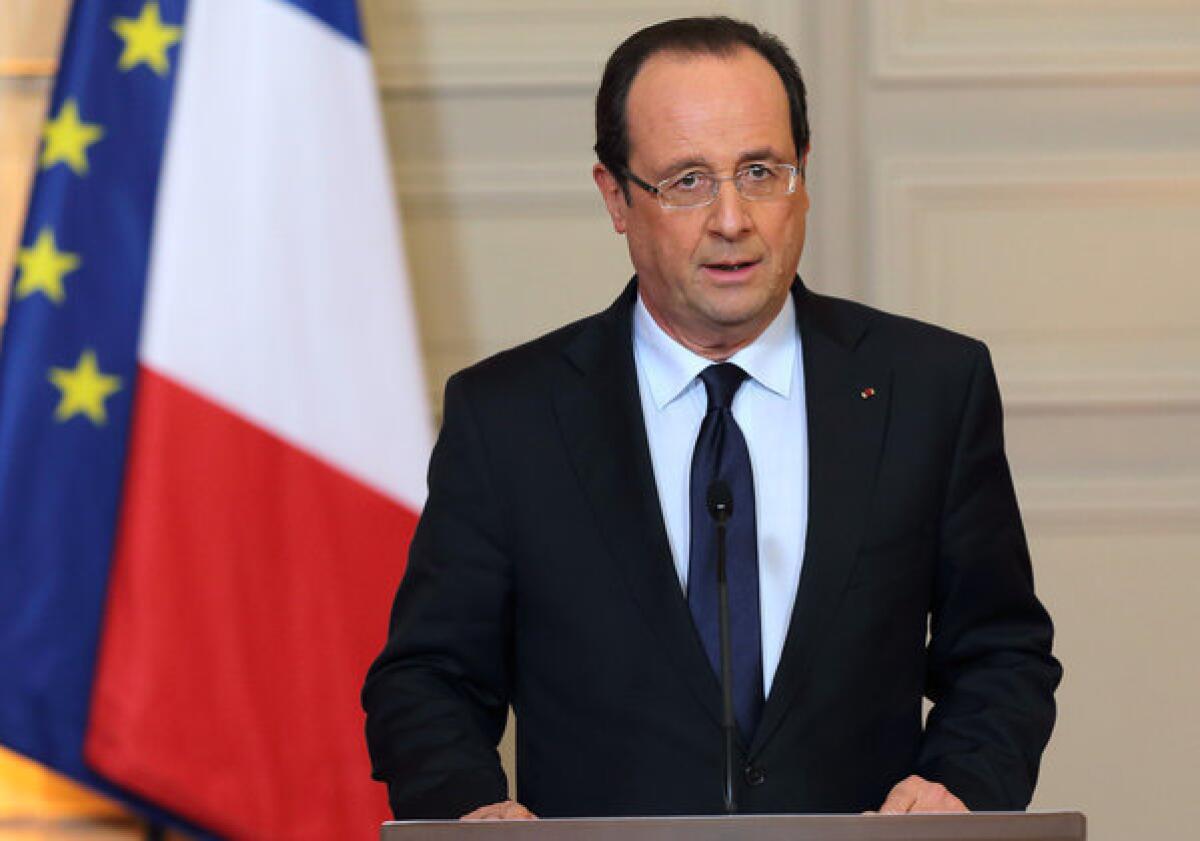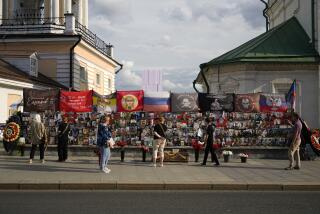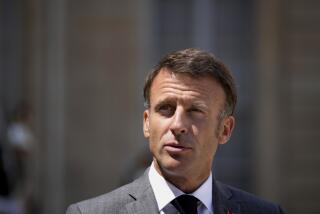French troops in Mali; Hollande vows to stop Islamists

- Share via
French troops have joined the Malian military in its fight to stop Islamist fighters from extending their reach into central Mali, President Francois Hollande said in a statement Friday.
Mali pleaded for French help Thursday after the strategic city of Konna fell to Islamist extremists, dealing a serious blow to the military and threatening a nearby airport. Reports quickly emerged Friday that French muscle was aiding in the push to eject rebels from Konna.
Hours after announcing that France “will be ready to stop the terrorists’ advance, if it continues,” Hollande confirmed to reporters that French troops were supporting Malian units and would do so “as long as is necessary,” Agence France-Presse reported.
A U.N. council has already approved plans to send thousands of West African troops to Mali, but officials cautioned last month that no action was likely before September. It has insisted on steps to stabilize the Malian government and firm up military planning before the international forces are deployed.
The fall of Konna put new pressure on world powers to act. Until this week, the Islamist fighters had kept to the arid north of the country. The push southward has set off alarm bells that rebels could seize more territory, drawing closer to the seat of government in the south.
“I used to dismiss the idea that they’d make a run for Bamako,” the capital, said Michael Shurkin, a political scientist with the Rand Corporation. “Maybe that’s not so crazy anymore.”
The U.N. Security Council expressed “grave concern” about the capture of Konna and called on world powers to aid the Malian military to combat the terrorist threat. Ties between the Islamist groups and Al Qaeda have set off fears of Mali becoming a base for terrorist attacks on the West. France is especially worried that its colonial history in Mali could make it a target.
Outside experts caution that simply booting out the rebels will not address the deeper crisis in Mali, which has yet to grapple with the grievances that led the Tuareg people to revolt. Islamists took advantage of the Tuareg gains to advance, imposing harsh religious law on the territory under their control and ultimately sidelining the Tuareg.
The government also remains shaky in the aftermath of a military coup, even after soldiers officially handed off power to a civilian government.
“I don’t have a lot of faith that these events are somehow going to pull people together and get them moving more quickly towards elections and resolving splits in the political class,” said Susanna Wing, an associate professor of political science at Haverford College.
In light of such underlying problems, the U.N. council also called Thursday for the immediate creation of “an agreed political road map” that advances “the full restoration of democratic governance” and includes serious negotiations with northerners not tied to extremist groups.
ALSO:
Karzai faces an altered landscape in talks with Obama
Expect a stealth leadership struggle in post-Chavez Venezuela
Islamist rebels move into central Mali in new clashes with army
More to Read
Sign up for Essential California
The most important California stories and recommendations in your inbox every morning.
You may occasionally receive promotional content from the Los Angeles Times.












